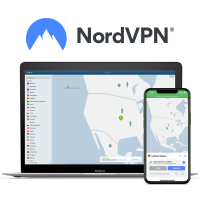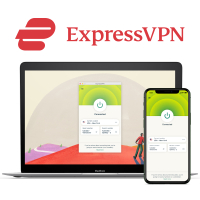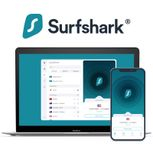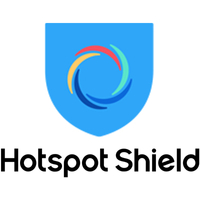The best free VPN in 2024
The best free VPNs can't match paid providers – but there are still some quality options available

Free VPNs are a convenient way of improving your online privacy without spending anything. However, the quality varies widely – only a select few are worth actually downloading, while many should be actively avoided.
If you're looking for the best free VPN, we can help. We've tested and reviewed all the main services to bring you our guide to the top free VPNs available today. Here, I've highlighted the only free services I consider safe to use – and my top two choices are the best products by a hefty margin.
It's worth noting that free VPNs can't match paid services, so don't expect a seamless experience. There will always be some kind of limitation, be it a data cap or server restrictions, so if you're looking for a permanent privacy solution, premium VPNs are the best choice. But if you only plan on using a VPN occasionally, read on to find the best free option for your needs.
The best paid VPN providers
The following three providers are paid VPNs, but there's a reason I've included them. At around $3 per month, NordVPN – the best VPN from our testing – is affordable, and far superior to any free VPN. It's faster, unblocks streaming services more reliably, has over 100 countries to pick from, and offers unlimited data. I've included NordVPN and two other premium VPNs here for those who are looking for the best possible service (and pro tip: you can get each one free for a month by taking advantage of their 30-day money-back guarantees).
1. NordVPN: get the best VPN overall free for 30 days
NordVPN is my number one VPN for a reason. With super speeds and locations in over 100 countries, it's perfect for tapping into global streaming sites – all while protecting you with its rock-solid encryption and privacy features. Prices start at $3.39 per month, and higher plans offer tons of extras. Try it out for 30 days – if you don't like it, you can claim a full refund.
2. ExpressVPN: get the simplest VPN free for 30 days
ExpressVPN is the easiest VPN to use, and it's perfect if you just want to protect yourself with strong encryption and stream global content with absolutely no fuss. It's more expensive than NordVPN at $6.67 per month, but you'll get three months free on the 12-month plan, plus a year of Backblaze could storage. ExpressVPN also offers a 30-day money-back guarantee, so you can get a month absolutely free.
3. Surfshark: get the best cheap VPN free for 30 days
Surfshark is an excellent choice if you're looking for a premium VPN on a budget. It has a good range of privacy features, excellent connection speeds, and servers in over 100 countries. The price has recently dropped to $2.19 per month, and you can get a free month with its 30-day money-back guarantee.
Recent updates
The biggest recent change to this page was the removal of Atlas VPN, after parent company Nord Security decided to shut down the service. In terms of ranking, Proton's recent downgrade to its server selection process makes it even more clear that PrivadoVPN is the best free choice. However, if you think you might upgrade to a paid plan in the future, Proton VPN may suit you better. In my most recent update, I've included more detail on how to choose a free VPN, and ensured all the facts and figures are up to date.
The best free VPNs of 2024
Why you can trust Tom's Guide
PrivadoVPN: The best free VPN overall

1. PrivadoVPN Free
Excellent streaming and super-fast speeds are PrivadoVPN's key strengths, and while its apps are simple and may not offer everything an expert needs, it's the best free VPN for occasional use.
Countries: 10 | Server locations: 12 | Maximum devices supported: 1 | Available on: Windows, Mac, iOS, Android, Linux | Data limit: 10GB per month (+ slow unlimited data) | 24/7 live chat: No, FAQ and email available
PrivadoVPN hasn't been around for as long as its competitors, but despite being founded in 2019, it's overtaken its rivals by offering the best free package available right now. It has more servers available for free than Proton VPN, and its apps are much nicer to use than Windscribe's.
In my PrivadoVPN Free review I was able to unblock some streaming services – although nowhere near as many as NordVPN or ExpressVPN – and connection speeds are up there with some of the fastest VPNs. Those focusing on privacy may prefer Proton VPN, because PrivadoVPN hasn't undergone an independent audit yet, but there's no evidence that it doesn't do what it promises.
Click to read more about PrivadoVPN Free ▼
Below, I'll explore PrivadoVPN Free in detail.
Features
PrivadoVPN Free ticks all the boxes when it comes to the basics, and something I really appreciate is the fact that it doesn't hold back any core privacy features from free users. You'll likely just be selecting a server and connecting, but there's a decent amount of stuff under the hood to get stuck into.
First up, there's a kill switch, which will keep you protected if your VPN cuts out. This is a key feature that no VPN should be without, regardless of price, and Privado's held up well in my testing. The auto-connect feature isn't quite as powerful as NordVPN's – it'll only auto-connect when you launch the app, not when an untrusted network is detected – but it's nice to have regardless.
Something that I don't like is rival Proton VPN's decision to limit free users' ability to choose server location, and I'm glad that PrivadoVPN has maintained this feature. While there's still a limit on locations – 12 locations in 10 countries – this is comprehensive compared to what some rivals offer. What's more, you can switch server whenever you like.
That's about it. There are no added antivirus tools or ad blockers, but I don't see that as a huge downside. This is a just a free VPN that does what it says on the tin.
Apps
Simple is the name of the game here. On the face of it, it appears that PrivadoVPN has taken a lot of cues from ExpressVPN, and that's no bad thing. Whatever system you're using – Windows, Android, Mac, iOS or even Fire TV – Privado's apps are very similar, starting off with a simple home screen and a "connect" button.
Tap that and you'll connect to the automatically selected server, or you can scroll down to see your other options. Open the settings and on desktop you'll be greeted by a pop-up, and on mobile you'll head to a separate screen. On desktop, you also have the option to pin the app to the dock or taskbar, although I've found this more hassle than it's worth.
On PrivadoVPN's free iPhone VPN there's no kill switch, but while this is possible – Proton VPN and IPVanish offer this – many of the big players like NordVPN and ExpressVPN don't. I'd love to see it, but I can't mark this too harshly, and on all other platforms the kill switch is available.
Overall, Privado's apps are pleasant to use, and get the job done. They're not especially flashy, and they don't have a lot of features, but they're perfectly serviceable.
Privacy and security
At its core, PrivadoVPN is built around AES-256 encryption, which is the industry standard. In short, even if your traffic is intercepted it'll be totally unreadable. OpenVPN and WireGuard protocols are both available, and while most users will now use the swift and secure WireGuard, it's nice to have OpenVPN as an option.
If you're the techy type, you'll appreciate the ability to configure OpenVPN to your liking. You can choose between TCP and UDP, and select which port to use. That's something very few people will actually use, but it's great that it's here. You can also obfuscate your connection, which means you can hide the fact that you're using a VPN at all. This is useful on networks that restrict VPN use, and in countries that heavily censor the internet, like Russia, Iran, and the UAE.
PrivadoVPN does have a robust zero-logging policy, but like I mentioned above, this is yet to be proven by an independent audit. I've actually visited PrivadoVPN's data center in Amsterdam and personally and spoken to the development team. They say this is due to the disruption an audit can cause, and as a relatively new service, Privado is intent on developing further before sacrificing a significant amount of time to an audit.
From my testing, I'm confident that PrivadoVPN is safe to use, but I've got my fingers crossed that the team will undertake an audit sooner rather than later to prove their claims without doubt.
Speed and streaming
In my testing, PrivadoVPN Free was remarkably fast, topping out at 900 Mbps. To put that into perspective, you only need 50 Mbps to stream 4K video, so it's unlikely to slow you down.
Compared to Proton VPN Free, which hit 520 Mbps, and even ExpressVPN, which hit 410 Mbps, PrivadoVPN is very speedy. Only the very fastest providers like NordVPN, Surfshark and Mullvad – all of which maxed out our 1 Gbps connection – are faster.
More impressively, PrivadoVPN is able to unblock a few streaming sites, which is almost unheard of for a free VPN. In our testing, it could access US and Japanese Netflix, but was unable to unblock UK, Canadian, and Australian libraries.
Disney+ was also accessible, along with BBC iPlayer, making it a great free VPN to watch UK TV with, but it couldn't crack Amazon Prime Video, ITVX, Channel 4, 9Now, or 10 Play.
Of course, this is no match for the best streaming VPNs or dedicated Netflix VPNs, but as a free Netflix VPN, it's worth considering.
Final verdict

PrivadoVPN Free comes up short compared to paid providers, but it gets the closest of any free VPN. With excellent speeds, simple apps, and all the core features you need, it's my pick as the best free VPN. The lack of an independent audit of its infrastructure or privacy policy is a slight negative, but it's pleasant to use, and reliable. For most people, I think it's the one to go for.
| Attributes | Comments | Rating |
|---|---|---|
| App design | Smart, simple design that's appealing on desktop and mobile. | ★★★★ |
| Privacy and security | Industry-standard encryption and must-have features like a kill switch, plus a good zero-logging policy. However, the lack of an audit is a minor negative. | ★★★★ |
| Ease of use | Simple and attractive, and great for beginners. | ★★★★★ |
| Performance | Faster than many paid VPNs – seriously impressive. | ★★★★★ |
| Unblocking | Unrivalled unblocking for a free VPN, but no match for paid providers. | ★★★★ |
| Support | Capable support agents, but website lacks in terms of detailed articles. | ★★★★ |
Best free VPN with unlimited data
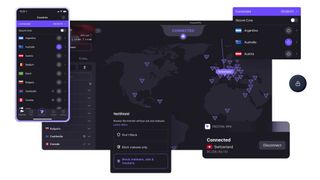
2. Proton VPN Free
Proton VPN is well-known for its paid plan, but the free version shares the same solid baseline, and unlimited data is a big plus. However, not being able to change servers at will holds it back from the top spot.
Countries: 6 | Server locations: 6 | Maximum devices supported: 1 | Available on: Windows, Mac, iOS, Android, Linux | Data limit: Unlimited | Support: Website, email
Proton is a well-established privacy company, and is known not only for its excellent Proton VPN, but Proton Mail, Proton Pass, and Proton Drive products. The paid-for version of Proton VPN competes with the likes of NordVPN and Private Internet Access, and is by far a better product than PrivadoVPN's premium plan.
In my Proton VPN Free review, I found the apps to be very usable, and offer much the same functionality as PrivadoVPN Free. You'll have access to over 100 servers in six locations, but the catch is that you can't choose which one you connect to. I'll explore that in more detail further down the page, but in short, Proton VPN is an very good free VPN, but that restriction may be too much for some.
Click to read more about Proton VPN Free ▼
Below, I'll explore Proton VPN Free in detail.
Features
Proton VPN free shares a lot with the premium version, which is a good thing. However, most of the interesting features are held back. This includes the Secure Core servers, the NetShield ad and tracker blocker, VPN Accelerator, Profiles, and some techy configuration bits and bobs.
What you do get is an effective kill switch, auto-connect, and DNS leak protection alongside the basic VPN. This is all you really need here. What's more, you'll get unlimited data, so you can keep it active at all times.
I've got to discuss Proton's decision to stop users choosing what server they connect to, though. Essentially, when you hit "connect," the app assigns you to one of the servers – and it's generally fairly close geographically to you. It appears that this server is selected to give you the fastest connection.
However, if you want to change the server, you'll only have the option of clicking the "change server" button. This will disconnect you from your current location and randomly assign you to a new one. After that, you'll have to wait 90 seconds to change again, and at no point do you have the option of choosing which server to use.
I understand why Proton has chosen to do this – it's to protect Proton's network as a whole from overloading, and to encourage people to upgrade – but it's a major factor for me choosing to recommend PrivadoVPN Free over Proton VPN Free. It's a recent change, too, and previously you could select your server from a range of free servers.
It might sound like I'm being very critical of Proton here, but it's important to understand its limitations. Other than this one restriction, I really like Proton VPN – so if you're just looking for quick protection from a trusted privacy brand, it may still appeal more than PrivadoVPN.
Apps
Proton's apps were recently overhauled, and the purple theme is very fetching. On desktop, you're able to extend or collapse the map interface, and I think this is better implemented than NordVPN's similar look.
It's easy to scroll down and find the servers – not that you'll be able to select any, mind you – and there are buttons to quickly activate the kill switch and view profiles.
On mobile, things are much the same. You'll get a server list, and also tabs to access the map, profiles, and settings. They're simple and effective, and make getting protected easy.
Privacy and security
This is where Proton VPN Free shines, and it's undeniably more accomplished here than PrivadoVPN. All the privacy essentials are available for free users. You'll have a kill switch, AES-256 encryption, and access to both OpenVPN and WireGuard protocols. This is all very positive to see from a free service.
You do miss out on the ability to moderate your NAT – useful for establishing peer-to-peer connections – but this is a very niche case, and won't be missed by many.
A big green flag is Proton's commitment to independent audits, and it has had its no-logs policy checked over and confirmed. Other providers have had more audits – ExpressVPN had over a dozen in 2023 alone – but it's still good to see.
Speed and streaming
Proton's paid plan is one of the very fastest I've tested, and while the free version isn't as speedy, it still clocked in at 520 Mbps. That's faster than ExpressVPN and Private Internet Access's paid plans, and more than enough for just about any use.
Streaming is another story, though. In my testing, it wasn't able to unblock any streaming sites at all. However, it's well worth noting that Proton has partnered with German news broadcaster Deutsche Welle, and both paid and free versions of the VPN have dedicated servers that allow unrestricted access to unbiased news coverage from anywhere in the world.
Final verdict

As a free service, Proton VPN is a worthy alternative to PrivadoVPN, and if you think you'll be upgrading in the future, or absolutely need unlimited data, it's the one to go for. However, the server limitations it imposes will be a step too far for some users, and it's no good for streaming.
| Attributes | Comments | Rating |
|---|---|---|
| App design | Recent facelift moves aesthetic from The Matrix to Cyberpunk 2077. | ★★★★ |
| Privacy and security | Open-source with powerful encryption. | ★★★★★ |
| Ease of use | Apps are powerful, but could be a little complex for newbies – and the server selection process is tedious. | ★★★ |
| Performance | Speeds are excellent, although PrivadoVPN is faster. | ★★★★ |
| Unblocking | Deutsche Welle access is more than most free VPNs, but you won't be streaming anything with Proton. | ★★★ |
| Support | Plenty of detailed guides, plus helpful support agents. | ★★★★★ |
Best free VPN Chrome extension

3. Windscribe Free
Windscribe offers the most features of any free VPN, and its Chrome extension is one of the very best, free or paid. However, awkward apps will put off beginners, and the paid plan can't match Proton VPN if you do upgrade in the future.
Countries: 11 | Server locations: 14 | Maximum devices supported: Unlimited | Available on: Windows, Mac, iOS, Android | Data limit: 10 GB | Support: Website, email
Windscribe is well-known in the VPN world for its zany marketing operations and commitment to user privacy. While its paid product is good, in my Windscribe Free review I found the freemium version to be the pick of the bunch.
Its server spread is remarkably generous. With 14 locations in 11 countries, it offers greater range than my top two providers here – although PrivadoVPN isn't far off with 12 locations in 10 countries.
You'll also get a generous amount of data per month, matching my #1 provider at 10 GB. However, here Privado just pips it to the post by offering unlimited yet slow emergency data. As mentioned above, Proton VPN Free outdoes both by offering truly unlimited browsing.
Click to read more about Windscribe Free ▼
Below, I'll explore Windscribe Free in detail.
Features
For a free VPN, Windscribe offers tons of features, and there's very little that's held back for paying customer. There are the basics like a kill switch – known here as "firewall" – and split tunneling, but it doesn't stop there.
There's auto-connect, packet size adjustment, MAC spoofing, obfuscation, and more. It's a very comprehensive list, and all I can find that's restricted is the secure hotspot feature.
For many, not as lot of that will matter, but for those who do care about this, it will give Windscribe a big step up compared to the competition. What's more, you can also choose exactly which server to connect to, just like PrivadoVPN.
The R.O.B.E.R.T. feature is another useful addition which blocks trackers, ads, and malware, as well as offering to block various other things like adult content, gambling sites, social networks, and even "clickbait." This is also free to use, and every time I open the app, I'm amazed at just how much Windscribe gives you.
Apps
If Windscribe's features are its biggest asset, its apps are its greatest downfall. On desktop, the client opens up as a very small window which extends in various ways to display the servers and the settings menu.
It's easy enough to connect – just click the on/off button – but doing anything else is just confusing. There are tons of different layers in which you'll find things like your static IPs and protocol options, which I can't help but think could be more easily accessible if the app had a bigger footprint.
There's also a news tab through which Windscribe communicates updates and various vaguely amusing jokes and memes. I do appreciate the light-hearted approach, but nine times out of ten it's just another click to close this tab before connecting.
Obviously, such a feature-rich product has to work out how to display everything, and this is the trade-off you make.
However, what I rate very highly is Windscribe's Chrome VPN extension. It's only a proxy, but compared to the apps it's very easy to use, and just gets the job done.
Privacy and security
Windscribe's privacy features are solid, and just like PrivadoVPN and Proton VPN, it's based around AES-256 encryption. It also uses Perfect Forward Secrecy, which means your keys are never reused, and even if one session is compromised, you'll still be protected in the next.
In my testing I found no DNS leaks, and the firewall (kill switch) stood up very well – I wasn't able to make Windscribe leak my real IP no matter what I threw at it.
Windscribe logs a very small amount of data – your total bandwidth used and when you last connected to the VPN – but on paper this doesn't truly bother me. What I'd like to see is an independent audit, and while Windscribe has claimed that one is "coming," there's still no evidence of one.
On the plus side, Windscribe's apps are all open-source, so they're open to scrutiny from you, or anyone else.
Speed and streaming
Windscribe is very fast, and is actually the fastest free VPN I've tested, clocking in at 910 Mbps. Realistically none of the VPNs so far are going to slow you down, but credit where credit is due.
It's also very capable for streaming, too, unblocking a couple of Netflix libraries as well as Disney+, BBC iPlayer, ITVX and Channel 4. However, it was stumped by Amazon Prime Video, a few Australian streaming sites, and UK, Australian, and Japanese Netflix libraries.
Final verdict

If you're looking for the most powerful free VPN, Windscribe could be your best bet. It's flexible, offers a decent amount of data every month, and barely restricts any features on the free plan. However, be prepared to live with annoying apps and the lack of an independent audit.
| Attributes | Comments | Rating |
|---|---|---|
| App design | Powerful, but not the nicest to use. | ★★★ |
| Privacy and security | Open-source apps make it easy to trust, but lacking an audit. | ★★★★ |
| Ease of use | Fairly simple to get up and running but there are tons of different menus to navigate. | ★★★ |
| Performance | Seriously fast. | ★★★★★ |
| Unblocking | Impressive access to US and Canadian Netflix and other sites. | ★★★★ |
| Support | No live chat makes quick resolution tricky, but email support is comprehensive. | ★★★ |

Other free VPNs worth considering
I think the vast majority of people will be best off picking from either PrivadoVPN, Proton VPN, or Windscribe. However, I've reviewed lots of other free VPNs, and some are still worth considering. Below are two more options that made the cut.
Hide.me is a Malaysian VPN that's been around for a long time. Its paid plan is popular, but it also offers a free version that gives you 10 GB of data, and servers in the US, Canada, Germany, and the Netherlands.
Key reasons to download Hide.me are its excellent torrenting performance, and lots of customizable features. It's great for those who know what they're doing, but casual users may be intimidated by the apps.
What really holds Hide.me's free VPN back is the fact that it doesn't support WireGuard, and only allows you to use OpenVPN. The result of this is that connection speeds are slowed to around 25 Mbps, which just isn't fast enough any more.
This is a shame, because Hide.me's paid version is very fast, but I'd avoid the free plan unless it offers something very specific that you can't find elsewhere.

Hotspot Shield was once my top choice of free VPN, but as the years have gone by it's failed to keep up with the competition.
Something it shares with Proton VPN is an unlimited data policy, and with speeds of around 590 Mbps you'll be able to make the most of this. It's also very easy to use, and the Chrome extension is great.
What puts me off the most when using Hotspot Shield, though, is the fact that it shows ads when you connect on mobile devices. It doesn't do this on desktop, but instead automatically opens its own website in your default browser when you connect.
Combined with just a single US server for free customers, some session logging, and the lack of a kill switch, it's unfortunate to say that there aren't a lot of reasons to choose Hotspot Shield over PrivadoVPN or Proton VPN.
Tested by
These are the experts who have tested, reviewed, and ranked the best free VPNs in this guide:

Mo is VPN Editor at Tom's Guide. He's covered VPNs since 2020, and in that time he has helped test and review over 100 providers. Mo handles the day-to-day testing of VPNs, making sure that they work for real people in real situations. He also undertakes ongoing streaming testing to make sure these services can unblock everything they claim, and produces video content to discuss and demonstrate the software.

Anthony is the Senior Security and Networking Editor at Tom’s Guide where he covers everything from data breaches and malware to password managers. He also undertakes VPN testing for Tom's Guide and TechRadar, which includes running all of our US-based speed tests.
How to choose the best free VPN
This page is exclusively designed to help make your decision-making process easier when it comes to choosing a free VPN. My top choice is the VPN I think will best suit most people, but before you pull the trigger it's good to consider exactly what you want from your free VPN.
For day-to-day privacy, you'll want reliable and proven privacy features, and a nice simple interface that doesn't get in the way of actually staying protected. I'm confident that all the providers here are safe to use, but you may prefer to go with a provider that has undergone privacy audits like Proton VPN over one that hasn't.
If you're into TV and film, you might want a free VPN that you can unblock Netflix libraries from around the world, and other streaming sites. both PrivadoVPN and Proton VPN are good here, with PrivadoVPN edging out all the competition as the most reliable for this.
How many devices you'd like to use your plan on is important, too. While it's easy to set up multiple accounts to get around limits, a good number of simultaneous connections can makes things much easier if you've got more than one device you want covered..
Finally, are there any specific locations you want to access? If so, make sure the provider you go for has a server in, or at least near this country. Also make sure you can actually choose the locations you connect to – Proton VPN's recent update has made this impossible, and you're forced to go with the automatically selected server.
The most important thing, though, is that you choose a free VPN that genuinely protects your privacy – and all the providers I've included here are solid in this respect. Don't just sign up to the first VPN you find in your app store, as even services with hundreds of thousands of users have been proven to be dangerous.
How I test the best free VPN services
With free VPNs, we have slightly different priorities than we do when testing paid products – check out how we test VPNs.
When it comes to free VPNs, there's less focus on the added extras, and more on making sure it really keeps you safe online. Simple apps and good fundamentals are important here. Streaming performance and extras like antivirus and ad blocking are considered premium features, and while some free VPNs do offer these, they're very much nice-to-haves, rather than the make or break features they can be when reviewing paid services.
We make sure all the apps, including iPhone, Mac and Android VPN apps are robust, and ensure all the features are working well. Core privacy features like the kill switch see extra scrutiny, and there are a number of tricks we employ to see if it can be trusted to protect you in every situation.
We'll also test streaming performance – which is often poor for free VPNs, but some have impressed – and finally test out any and all support options. General ease of use is also considered, and we scour the all-important privacy policies to root out any dodgy practices or ambiguities.
How does a free VPN work?
Free VPN services encrypt your data while it's in transit, creating a virtual tunnel through the internet. This separates your data packets from the countless others around them until they reach the service’s exit nodes many miles away from where you are.
Not only is the data encrypted, as it would be during a normal secure web session, but the routing information about the sender and intended recipient is hidden as well. If you're using a good product, this process is exactly the same for free VPNs as it is for paid versions.
You may have noticed the word "protocol" come up throughout this article, so it might be helpful to define it properly. Essentially, an encryption protocol is the way that your internet traffic is encrypted – imagine a very complex and computer-based version of the Enigma code used by the Germans in World War II. They're at the heart of every VPN, and there are a number of different protocols that can be used.
Today, the most popular VPN protocols are OpenVPN, and WireGuard. Various implementations of Internet Protocol Security (IPsec), which include IPsec by itself or in combination with Layer 2 Tunneling Protocol (L2TP) or Internet Key Exchange versions 1 and 2 (IKEv1 and IKEv2), are still seen, but are rapidly becoming outdated.
A VPN's scrambling and unscrambling of your data can sometimes slow internet traffic to a crawl. The best free VPN will have fast servers connected to huge data pipes to minimize this performance decline. They also have thousands of servers located in scores of countries, ranging from Albania to Zimbabwe.
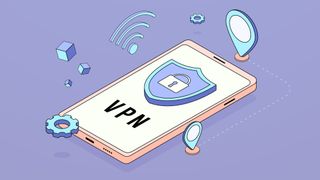
Is there a free VPN without limitations?
Perhaps, but I highly recommend not downloading a free VPN that offers an unrestricted product.
This goes back to the old adage that you never get something for nothing. If your free VPN has no restrictions, it's likely it won't have a paid plan for you to upgrade to. If that's the case, ask yourself the question, "how is this company making money?"
If this is the case, it's likely, if not guaranteed, that it's either selling your data for profit or inserting extra ads into the sites you visit – or quite possibly both.
By using a limited "freemium" VPN, there's a clear way the company makes money – by users upgrading, or simply purchasing the paid version straight away. Of course, there are scam products that masquerade as a legitimate providers, but all the options on this page have high-quality paid products, and good freemium versions that are 100% safe to use.
When might a free VPN not be a good choice?
A free VPN is likely to come up short for those looking to stream or torrent, or people looking for a gaming VPN. That's because these activities use up tons of data. If you've got unlimited data with your VPN, that's not an issue, but if you've only got 500 MB to play with, that's only about one episode in standard def on Netflix – and that's only if you can actually access the service.
Also, you might find that your connection speeds drop, and for gamers and torrenters that's a killer. Those activities rely on having high speeds, and only the best paid-for services can provide that.
Finally, some free VPNs struggle with privacy issues, and the addition of ads can be a real pain for users. If you want the most secure service, you'll have to pay for one – at least then you'll know exactly how your VPN is making money, rather than hoping it's not using your info to cash in.
Are free VPNs legal?
In short, yes. VPN software itself is no less legal than any other mainstream software.
However, using it to torrent copyrighted files is still illegal, as is accessing any other illicit content.
Essentially, while a free VPN is perfectly legal to own and use, it doesn't make illegal acts legal just because it makes the crime harder to detect.
Free VPN FAQs

Free VPN vs paid – which should you get?
I've discussed free vs paid VPNs before, but if you're looking for a short answer, it's quite simple. Free VPNs are best used very minimally – perhaps you need to check a price of a product in another country. Paid VPNs should be used if you're planning on regularly using the software, and nowadays even cheap VPNs deliver excellent performance.
Are free VPNs safe?
Our Cybersecurity Commissioning Editor Olivia Powell covered the question of whether free VPNs are safe in detail, but in essence, it boils down to choosing the right one. I consider all of the VPNs I've featured on this page safe to use, but if you head straight to your app store, you're bound to come across seemingly popular VPNs that are best avoided. Be vigilant, and make sure you're downloading as reputable product before you trust it with your traffic.
Is there a completely free VPN?
Well, it depends on what you classify as 'free'. There are plenty of free VPNs that don't part you from your cash, but you could be paying for them by watching ads or even unknowingly giving them your data to sell.
The best free VPN services tend to be 'free versions' that are intended to give you a taster of a paid product before asking you to actually hand over your money. The best providers like Proton VPN and PrivadoVPN do this by using data limits and server restriction to create an incentive to upgrade. Many people do, which pays for the company's costs overall.
I'd recommend avoiding any free VPN that doesn't have a paid option – if there isn't a paying customer-base supporting the development of the software, who knows where the company's getting its money?

Is a free VPN better than no VPN?
If you're using a good-quality provider like the ones I've recommended on this page, a free VPN absolutely is better than no VPN.
All the providers I've covered here offer industry-standard encryption, a range of server locations, and a usage amount of data that shouldn't be too restrictive if you're only using it sporadically.
That said, VPNs work best when they're active 24/7, and only Proton VPN Free offers an unlimited data cap. Here, paid VPNs will perform best, but in a pinch, a free VPN is much better than no VPN at all.
Disclaimer
We test and review VPN services in the context of legal recreational uses. For example:
1. Accessing a service from another country (subject to the terms and conditions of that service).
2. Protecting your online security and strengthening your online privacy when abroad.
We do not support or condone the illegal or malicious use of VPN services. Consuming pirated content that is paid-for is neither endorsed nor approved by Future Publishing.
Sign up to get the BEST of Tom's Guide direct to your inbox.
Get instant access to breaking news, the hottest reviews, great deals and helpful tips.

Mo is VPN Editor at Tom's Guide. Day-to-day he oversees VPN, privacy, and cybersecurity content, and also undertakes independent testing of VPN services to ensure his recommendations are accurate and up to date. When he's not getting stuck into the nitty-gritty settings of a VPN you've never heard of, you'll find him working on his Peugeot 205 GTi or watching Peep Show instead of finally putting up those shelves.
- Anthony SpadaforaSenior Editor Security and Networking
